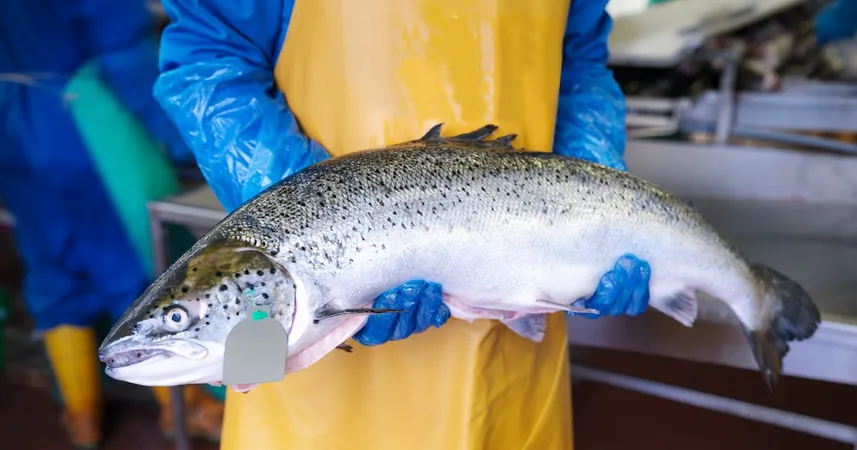
Seaweed Revolution: Is it the Secret Weapon Against Fish Inflammation?
2025-01-20
Author: Ming
The aquaculture sector is confronting a crisis, battling various hurdles to ensure the health and welfare of fish populations. However, researchers believe that innovative solutions could be on the horizon—could seaweed be the game-changer we've been waiting for?
Neda Gilannejad, a senior researcher at NORCE (the Norwegian Research Centre), recently posed this pivotal question following intriguing findings presented in a new study. Conducted alongside Lerøy Seafood Group and the Universidad de Almería, the research suggests that certain species of seaweed, notably kelp, could be transformed into vital feed components rich in bioactive elements.
One of the key takeaways from this research is that conservation techniques, including fermentation, can significantly boost the bioactivity of the beneficial compounds found in seaweed. This development offers promising prospects for the future of aquaculture.
Unleashing Bioactive Power
The research team delved into the properties of seaweeds and pinpointed the presence of Matrix Metalloproteinase Inhibitors (MMPIs) as particularly noteworthy. MMPIs have the potential to combat inflammation—a critical issue that arises notably when plant-based ingredients are incorporated into fish diets.
“Our in vitro trials mimicking the digestive processes of Atlantic salmon and Mediterranean gilthead seabream indicated that these compounds exhibit remarkable efficacy,” stated Gilannejad. MMPs, essential enzymes involved in tissue remodeling, have been linked to various inflammatory disorders, making their inhibition vital for the health of aquaculture species.
Experimental Insights
The study meticulously evaluated the impact of seaweed extracts on intestinal MMP activity among three carnivorous fish species: Atlantic salmon, European seabass, and gilthead seabream. The results were notable—both brown and red seaweed extracts demonstrated significant inhibitory activity on MMPs, whether fresh or processed.
Moreover, experimental feeds that integrated these algal meals maintained their effectiveness in restricting MMP activity under simulated digestive conditions. This indicates a compelling potential application of seaweed in fish feed formulations, reinforcing the idea that the marine resources, often overlooked, could be the key to improving fish health.
A Healthy Investment for the Future
This groundbreaking research was supported by BlueRemediomics, a Horizon Europe project geared towards harnessing the marine microbiome for sustainable biogenics, alongside funding from Norway’s Fisheries and Aquaculture Industry Research Funding (FHF).
“The outcomes of this study underscore the critical role of bioprospecting marine resources in addressing the urgent health challenges faced by aquaculture,” Gilannejad emphasized, shedding light on the importance of looking beyond conventional solutions and tapping into nature’s bounty.
As the aquaculture industry grapples with health issues exacerbated by modern feeding practices, could seaweed truly offer a sustainable remedy? The answer may be closer than we think. Keep an eye on this evolving narrative, as the marine world may hold the key to a healthier future for fish farming!






 Brasil (PT)
Brasil (PT)
 Canada (EN)
Canada (EN)
 Chile (ES)
Chile (ES)
 Česko (CS)
Česko (CS)
 대한민국 (KO)
대한민국 (KO)
 España (ES)
España (ES)
 France (FR)
France (FR)
 Hong Kong (EN)
Hong Kong (EN)
 Italia (IT)
Italia (IT)
 日本 (JA)
日本 (JA)
 Magyarország (HU)
Magyarország (HU)
 Norge (NO)
Norge (NO)
 Polska (PL)
Polska (PL)
 Schweiz (DE)
Schweiz (DE)
 Singapore (EN)
Singapore (EN)
 Sverige (SV)
Sverige (SV)
 Suomi (FI)
Suomi (FI)
 Türkiye (TR)
Türkiye (TR)
 الإمارات العربية المتحدة (AR)
الإمارات العربية المتحدة (AR)